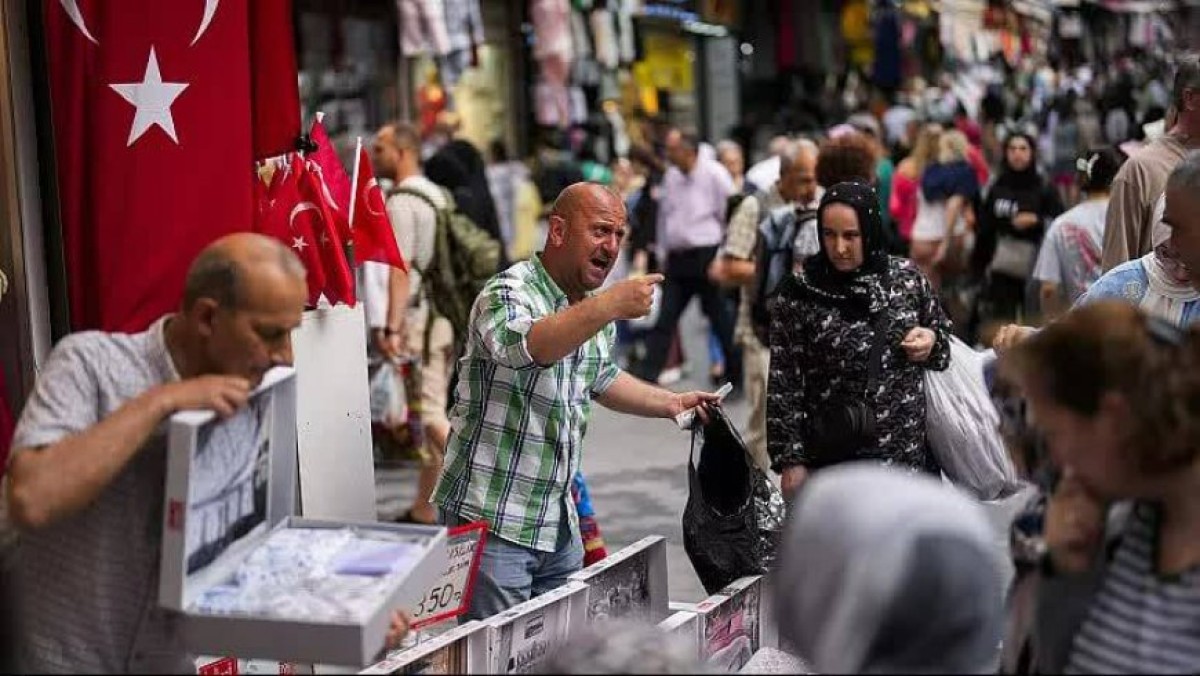 270
270
Turkey's Inflation Crisis: Purchasing Power Hits New Lows
In recent years, Turkey has grappled with an alarming rise in inflation, with the average annual inflation rate reaching 64.27% in 2022 and peaking at over 85% during the winter of the previous year. Alas, the situation regarding inflation and the price index remains unchanged, as the Turkish Statistics Organization's recent announcement reveals a current annual inflation rate of 47.83% based on the consumer price index.
By: N. Daneshvar
Against the backdrop of successive inflations and hyperinflation, Cevdet Yılmaz, the first vice president of Turkey, outlined an optimistic assessment during a detailed speech last September. He predicted an inflation rate of 65% at the beginning of the year, followed by 33% by the end of next year, 15.2% in 2025, and 8.5% in 2026. Simultaneously, Mehmet Şimşek, the Minister of Treasury and Finance, reported a 3.8% economic growth in the first half of the year. However, due to Turkey's challenging financial conditions and global trade challenges, this growth has decreased by 1.8% compared to the same period last year. Despite these setbacks, the government remains resolute in its commitment to implementing necessary programs.
To understand the reasons behind this economic predicament, we must delve into a range of factors. Some economic and political experts attribute the decline in Turkey's economic indicators to events such as a devastating earthquake causing a financial loss of $104 billion. Additionally, the implementation of certain monetary policies by Erdoğan’s administration, coupled with Turkey's foreign policy approach and its handling of international issues, have contributed to the decline. Furthermore, missteps in foreign policy decisions over the years have further exacerbated Turkey's economic challenges. With the decrease in GDP growth rate this year, the rising inflation rate, and the trade balance deficit, these factors are expected to perpetuate Turkey's economic crisis in the foreseeable future.
It is worth noting that alongside record low inflation, the value of the lira has also reached its lowest point in recent years. Reports indicate that the Turkish lira has nearly halved in value due to central bank decisions. Despite the government's concentrated efforts to reduce inflation below 50% this year, the Turkish people continue to endure high inflation and reduced purchasing power. Economic experts predict that Turkey's economic crisis will persist, considering the 3.5% decrease in the forecasted growth rate of the country's gross product, reducing it to 4.4%, and a trade balance deficit exceeding $109 billion.
Since President Recep Tayyip Erdoğan's re-election this spring and the implementation of certain monetary policies, the Turkish lira has lost 28% of its value. While Turkish authorities have endeavored to meet the currency demand in the market and stabilize the lira's value, the central bank's reserves have dwindled by $5.7 billion as of June, reaching their lowest level since 2002. In light of these developments, The Guardian newspaper, in its analysis of Turkey's economic events, aptly stated, "There is work but no money; the economic crisis in Turkey has shown its effects in the worst possible way."
In conclusion, Turkey finds itself grappling with an ongoing economic crisis amid regional and international variables, strained relations with the West, and repeated attempts to implement various market management methods. Turkey now seeks to bolster its economy by fostering stronger ties with the UAE and Qatar while attracting investments from Saudi Arabia. However, with the Islamic Republic of Iran's improved relations with Persian Gulf countries through its neighborly policies, Turkey may face increasing challenges in attracting powerful partners to navigate the long-term economic crises it currently face
 270
270
Comment
Post a comment for this article